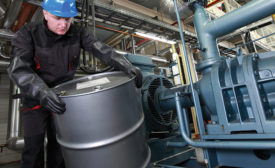Home » EPA
Articles Tagged with ''EPA''
Obama announces plans to cut methane emissions
Oil industry says new regulations not necessary
January 15, 2015
Never miss the latest news and trends driving the safety industry
eNewsletter | Website | eMagazine
JOIN TODAYCopyright ©2024. All Rights Reserved BNP Media.
Design, CMS, Hosting & Web Development :: ePublishing






